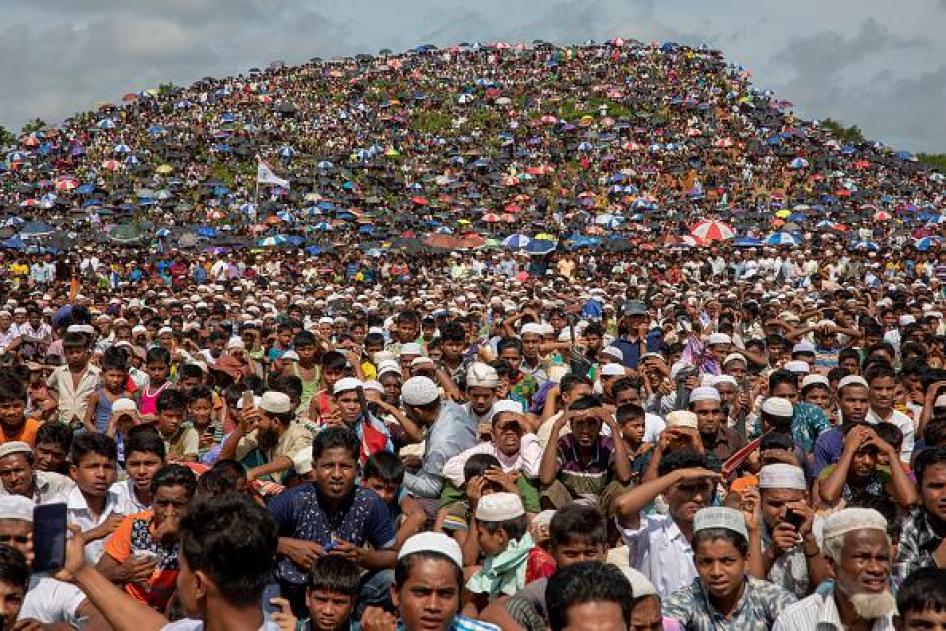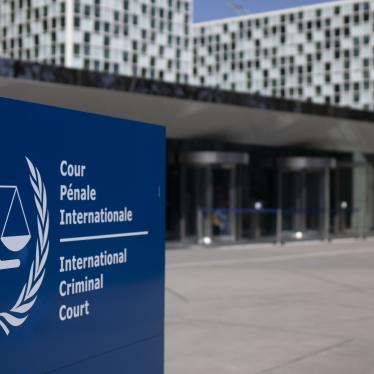Watch out, Myanmar.
Until last week, Myanmar's government had gotten away with countless atrocities against Rohingya Muslims in Rakhine State. The military's ethnic cleansing campaign of murder, rape, and arson has been detailed in reports by the United Nations, the media, and human rights groups, including my colleagues at Human Rights Watch. But holding Myanmar to account was knocking on a locked door.
Then, in just four days last week, a series of developments busted that door open.
On November 11, Gambia—a small West African country emerging from a brutal dictatorship—courageously brought a case against Myanmar before the International Court of Justice for its atrocities against the Rohingya as violating the Convention on the Prevention and Punishment of the Crime of Genocide. Gambia's filing marks the first time that a country without any direct connection to the crimes has relied on its membership in the Genocide Convention to bring a case before the world court. Other countries should join the Organisation of Islamic Cooperation in making clear their strong support for Gambia's effort to hold Myanmar's government to account.Ads by scrollerads.com
There have been other breaking developments to bring Rohingya closer to seeing individuals responsible for grave crimes brought to justice, too.
In Argentina, a group of Rohingya and Latin American human rights organizations filed a criminal case against Myanmar's top military and civilian leaders for crimes committed in Rakhine State. They filed the case using the principle of universal jurisdiction – an avenue for crimes so serious that all states have an interest in addressing them.
And now the International Criminal Court will begin investigations into crimes against humanity, notably the alleged forced deportation of more than 740,000 Rohingya into Bangladesh, an ICC member, in 2017. The ICC prosecutor can now officially collect evidence and build cases against individuals responsible for the crimes, which could include the architects of the merciless campaign.
These legal actions stand in stark contrast to the UN Security Council's paralysis on Myanmar's abysmal record of abuse against the Rohingya and other ethnic minorities. The Security Council has been unwilling to meet regularly to address this crisis, let alone refer Myanmar to the ICC, a necessary step since Myanmar isn't a member of the court. An ICC referral remains critical so that all grave crimes against the Rohingya—as well as those committed against ethnic minorities in Kachin and Shan states, where many of the military's brutal tactics have mirrored those in Rakhine State—could be addressed.
Myanmar denies its involvement in atrocities, peddling a flimsy—and disproven—story of massive crimes committed by the Arakan Rohingya Salvation Army, a small ethnic armed group. Satellite imagery alone tells a very different story, revealing the government's bulldozing of numerous Rohingya villages to make way for military installments, erasing valuable evidence of its crimes.
And Myanmar's desire to avoid meaningful steps toward justice has been shown time and again by its national commission of enquiry, whose chair has said that "there will be no blaming, [...] no finger-pointing of anybody." This commission has yet to deliver any results and likely will not if the resounding failure of the previous eight government commissions offer any indication.
On this dismal landscape, these recent developments offer an especially powerful check on Myanmar's presumption of impunity. The turning wheels of justice should make Myanmar's leaders think twice before committing future abuses. It's also a wake-up call for China and other countries that have counted on their influence to shield Myanmar from its international legal obligations. And the strengthening narrative of Myanmar as a pariah state has increased the political cost for countries that would rather avert their eyes to the government's brutality and carry on as usual.
Finally, Rohingya survivors have reason to hope that one day there could be real accountability for the atrocities against them. As the Rohingya author Mayyu Ali wrote, "Our pain is considered. Our suffering is recognized. Our fate from forgotten is recognized."









